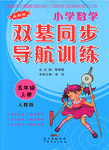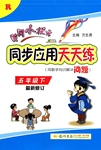题目内容
It was the fourth time that Tom _____ in the maths exam.
A. failed B. had failed
C. have failed D. has failed
练习册系列答案
 开心试卷期末冲刺100分系列答案
开心试卷期末冲刺100分系列答案 双基同步导航训练系列答案
双基同步导航训练系列答案 黄冈小状元同步计算天天练系列答案
黄冈小状元同步计算天天练系列答案
相关题目
题目内容
It was the fourth time that Tom _____ in the maths exam.
A. failed B. had failed
C. have failed D. has failed
 开心试卷期末冲刺100分系列答案
开心试卷期末冲刺100分系列答案 双基同步导航训练系列答案
双基同步导航训练系列答案 黄冈小状元同步计算天天练系列答案
黄冈小状元同步计算天天练系列答案